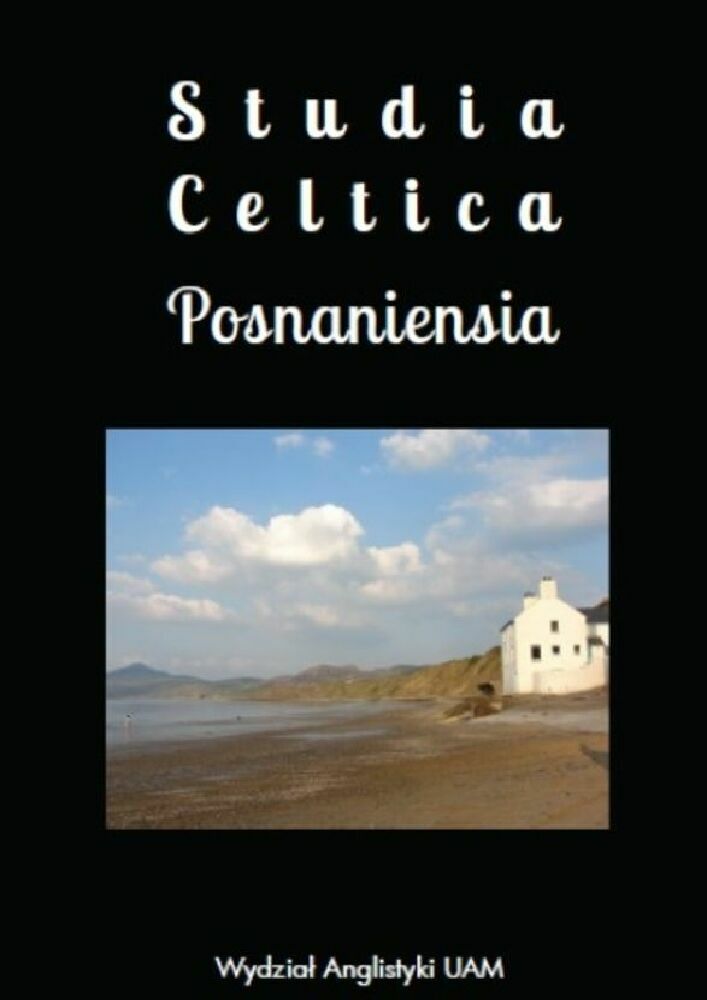Abstract
This article presents the results of a small-scale research conducted for a master’s thesis on the motivation to learn Irish on the part of university students and members of the Gaelic society An Cumann Gaelach. In the light of questionnaires’ results and interviews, the emphasis is placed on the links between motivation, identity, and potential key moments in learners’ lives. Using an AMTB-type questionnaire (n=45), the author puts to the test Dörnyei’s Motivational Self System theory (2005) in the context of the learning of Irish by looking at the correlation between the motivational intensity of 45 students and six variables (Ideal L2 Self, Ought to Self, Ideal L2 Community, Instrumentality, Parental encouragement, and Role of teachers). The notion of Ideal L2 Self, or the capacity to picture oneself speaking an L2 in the future, clearly appears to be strongly correlated with the respondents’ motivational intensity (r=.75 p<.01), in accordance with Dörnyei’s model. However results concerning extrinsic factors differ from previous research, putting forward distinctive features of the learning of minority languages. The second phase of the research looks at the language learning narratives of three An Cumann Gaelach’s members through the qualitative analysis of three interview transcripts. The results clearly show that time spent in Irish summer colleges are linguistic mudes (Pujolar and Puigdevall 2015), or key-moments, which triggered the interest in the language for the three students interviewed.
References
Bourdieu, Pierre. 2001. Langage et pouvoir symbolique. Paris: Seuil.
Costa, James. 2015. ‘New speakers, new language: on being a legitimate speaker of a minority language in Provence’. International Journal of the Sociology of Language 231: 127-145.
Donitsa-Schmidt, Smadar, Ofra Inbar and Elana Shohamy. 2004. ‘The Effects of Teaching Spoken Arabic on Students’ Attitudes and Motivation in Israel’. The Modern Language Journal 88(2): 217-228.
Dörnyei, Zoltán. 2005. The Psychology of the Language Learner: Individual differences in second language acquisition. Mahwah: Lawrence Erlbaum.
Dörnyei, Zoltán and Richard Clèment. 2001. ‘Motivational characteristics of learning different target languages: Results of a nationwide survey’, in Zoltán Dörnyei and R. Schmidt (eds.), Motivation and second language acquisition, Honolulu, HI: University of Hawaii Press, 399-432
Dörnyei, Zoltán and Ema Ushioda (eds.). 2009. Motivation, Language Identity and the L2 Self. Bristol, UK ; Buffalo, NY: Multilingual Matters.
Gardner, R. C. 1985. Social psychology and second language learning: the role of attitudes and motivation. London; Baltimore, Md., U.S.A: E. Arnold.
Harris, John and Lelia Murtagh. 1999. Teaching and Learning Irish in Primary School: a review of research and development. Dublin: Institiúid Teangeolaíochta Éireann.
Higgins, E. T. 1987. ‘Self-discrepancy: A theory relating self and affect’. Psychological Review 94(3): 319-340.
Mac Giolla Chríost, Diarmait. 2005. The Irish Language in Ireland From Goídel to globalisation. New York: Routledge.
Markus, Hazel and Paula Nurius. 1986. ‘Possible selves’. American Psychologist 41(9): 954-969.
Muñoz, Carmen (ed.). 2012. Intensive Exposure Experiences in Second Language Learning. Bristol, U.K.: Multilingual Matters.
Norton, Bonny. 2000. Identity and Language Learning : gender, ethnicity and educational change. Harlow: Pearson Education Limited.
Ó Murchú, Helen. 2014. More Facts About Irish (Vol. 2). Dublin: Comhdháil Náisiúnta na Gaeilge.
O’Rourke, Bernadette, Joan Pujolar and Fernando Ramallo. 2015. ‘New speakers of minority languages: the challenging opportunity – Foreword’. International Journal of the Sociology of Language 231: 1-20.
O’Rourke, Bernadette and John Walsh. 2015. ‘New speakers of Irish: shifting boundaries across time and space’. International Journal of the Sociology of Language 231: 63-83.
Pavlenko, Aneta and Adrian Blackledge (eds.). 2004. Negotiation of identities in multilingual contexts. Clevedon, UK: Multilingual Matters.
Pujolar, Joan, and Maite Puigdevall. 2015. ‘Linguistic mudes: how to become a new speaker in Catalonia’. International Journal of the Sociology of Language 231: 167-187.
Taguchi, Tatsuya, Michael Magid and Mostafa Papi. 2009. ‘The L2 Motivational Self System among Japanese, Chinese and Iranian Learners of English: A Comparative Study’, in Zoltán Dörnyei and E. Ushioda (eds.). Motivation, language identity and the L2 self. Bristol: Multilingual Matters, 66-97.
Ushioda, Ema. 2012. ‘Motivation: L2 Learning a Special Case?’, in: S. Mercer, S. Ryan, and M. Williams. Psychology for Language Learning. Basingstoke: Palgrave Macmillan.
Yashima, Tomoko. 2009. ‘International posture and the ideal L2 self in the Japanese EFL Context’, in Zoltán Dörnyei and Ema Ushioda (eds.). Motivation, language identity and the L2 self. Bristol: Multilingual Matters, 144-163.
License
Copyright (c) 2016 The Faculty of English, Adam Mickiewicz University

This work is licensed under a Creative Commons Attribution-NonCommercial-NoDerivatives 3.0 Unported License.
